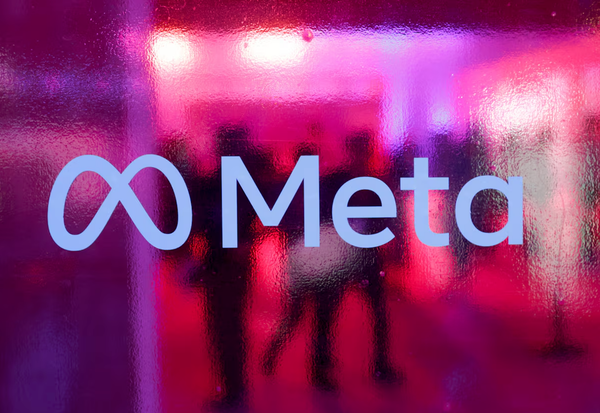What Your Favourite AI Tool Says About Your Deepest Marketing Insecurities

Remember when we all thought AI would just churn out perfect copy while we, the "creatives," sipped artisanal coffees? Turns out, it's more like a particularly nosy therapist, subtly pointing out your deepest professional fears. The truth is, the rapid adoption of AI tools in marketing has been an interesting ride. We initially thought these digital saviours would solve everything, but instead, they've become quite revealing.
Here's the unspoken truth: your favourite AI tool isn't just a preference; it's often a reflection of what you secretly feel you're not good enough at. It's your digital security blanket, your computational crutch. Now, this isn't a serious psychological analysis - mostly. It's a playful, self-aware exposé about why we cling to certain digital solutions. So, settle in. We're about to delve into the tell-tale signs.
The Confessional: AI Tools & Their Tell-Tale Signs
Let's dissect these digital relationships, shall we?
The "Too Busy" Marketer: Your Obsession with Automation Tools (HubSpot AI, Salesforce AI, etc.)
If your go-to AI is something deeply embedded in your CRM or marketing automation platform, perpetually whirring away in the background, you're probably terrified of losing control. Or, more accurately, of losing leads, falling behind, or not being able to scale fast enough. There's a deep-seated anxiety about manual tasks eating into "strategic" time, leaving you swamped.
The tool's promise is irresistible: seamless integration, automated workflows, lead nurturing on autopilot. It whispers sweet nothings about efficiency and untapped potential. The reality? You're likely still drowning in work, but at least your AI is diligently crafting passive-aggressive follow-up emails for you, ensuring no prospect ever truly escapes. You don'tlove Salesforce AI, you're just praying it stops a spreadsheet pile-up that would make Mount Everest look like a molehill. And honestly, who isn't?
The "Writer's Block" Worrier: Your Affinity for Content Generators (Jasper, Copy.ai, etc.)
Ah, the blank page. The blinking cursor. The existential dread of another deadline looming when your brain feels like a forgotten crisp packet on a Monday morning. If Jasper or Copy.ai is your ride-or-die, then congratulations, you've admitted you're scared your well of ideas has run dry. Or perhaps, more acutely, you're simply exhausted by the relentless demand for fresh, engaging content.
These tools promise endless ideas, instant drafts, and a miraculous cure for creative slumps. They're your digital muse, ready to churn out headlines, blog intros, or social posts on command. The reality? You're still editing, tweaking, and adding the actual spark of human insight, but at least the initial nonsense-or surprisingly solid starting point-is someone else's fault. It's a relief not to start from absolute zero, isn't it?
The "Visual Vexation" Victim: Your Reliance on AI Image/Video Generators (Midjourney, RunwayML, etc.)
Did you launch into Midjourney or RunwayML the moment you heard about them? Then chances are, you suffer from asecret lack of visual flair, a tight budget for professional designers, or a crippling fear of creating anything that looks even remotely stock-image terrible. Your last attempt at "creative" might have looked like it was drawn by a toddler with a crayon.
These tools promise unique, high-quality visuals on demand, no design skills required. It's the dream. The reality? You're trading "terrible stock photos" for "fascinatingly bizarre AI creations that might accidentally feature six fingers on a hand" or "a CEO with subtly misaligned eyes." Now you just need to explain to the client why your new brand video includes a cat wearing a monocle when your product is enterprise software. Still, it beats trying to navigate Photoshop yourself.
The "Data Drowning" Dilettante: Your Dependence on AI Analytics/Insights Tools (Google Analytics AI Insights, Tableau AI, etc.)
If your favourite AI tool is relentlessly crunching numbers, generating automated reports, and unearthing "hidden insights," then you're likely overwhelmed by data. You might have a secret disdain for spreadsheets, or a genuine fear of presenting insights that aren't actually, well, insightful. The sheer volume of metrics can make even the most seasoned marketer feel a bit lost.
These tools promise clarity amidst the chaos: automated reports, identified trends, and data translated into actionable strategies. The reality? You're probably still baffled by the dashboards, but at least AI gives you a confident-sounding bullet point or two to put in your presentation, so you don't have to admit you don't know your CTR from your elbow. It's less about understanding the data yourself, and more about having a plausible answer when asked.
The "Audience Anxious" Analyst: Your Embrace of AI Persona/Targeting Tools (IBM Watson Advertising, Sentiment Analysis AIs)
Are you constantly tinkering with AI tools designed to build detailed personas, predict audience behaviour, or analyse sentiment? Then your underlying insecurity might be a fear of misinterpreting your audience, alienating key demographics, or simply not "getting" how people actually think and feel. Especially those Gen Z kids - they're a conundrum even for AI.
These tools promise deep audience insights, accurate persona development, and precise targeting. They're meant to ensure your message lands perfectly every time. The reality? They absolutely help, providing layers of data you couldn't unearth manually. But let's be honest, you're still watching TikTok trends on your lunch break, just in case, because human behaviour remains wonderfully, frustratingly complex. Admit it, you use those AI audience tools because you're scared of accidentally targeting your new campaign at, like, competitive bingo players when you're selling NFTs.
Beyond the Insecurity: Making AI Actually Work
It's perfectly okay to have these insecurities. We all do. The key is to recognise why you lean on a particular tool. Use this self-awareness to prompt better. If you find yourself over-relying on a content generator because you lack headline ideas, then get specific: prompt it for five different types of headlines (problem/solution, curiosity, benefit-led), with strict character limits, and a specific tone.
Remember, the human still reigns. For now, anyway. AI is a powerful assistant, but it lacks true intuition, genuine empathy, and the ability to laugh at itself (well, maybe it can, but it's not the same). Your strategic brain, your human oversight, and your ability to add that indefinable 'spark' are still non-negotiable.
Don't just put all your eggs in one algorithmic basket. Explore different tools and understand their unique strengths, rather than just clinging to the one that soothes your primary fear. Maybe your content generator is great, but a touch of AI analytics could make that content even more effective, by revealing which content actually resonates.
Your AI, Your Truth
So, the next time you fire up your favourite AI, take a moment. Look into its digital soul. And then, perhaps, admit that you're just slightly terrified of writing another ten headlines before tea break.
It's perfectly fine to have these professional vulnerabilities. In fact, acknowledging them is the first step to truly leveraging AI's potential. Use these tools to shore up your weaknesses, certainly, but never forget that the real magic comes from your own human brilliance. The AI is simply there to help you unleash it.





